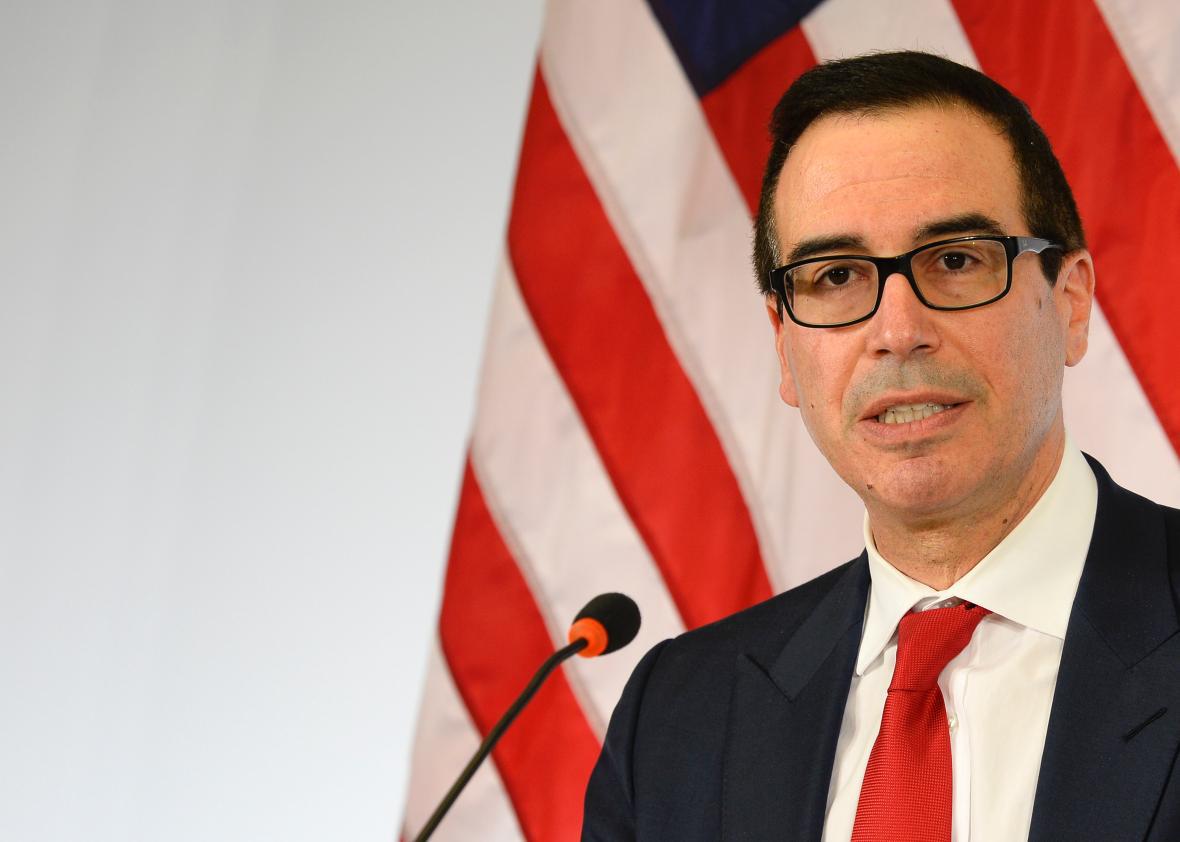Treasury Secretary Steven Mnuchin is a sharp guy. He’s a (legacy) alumnus of Yale and Goldman Sachs, did well on Wall Street, and was a successful movie producer and bank investor. He’s good at, and willing to, put other people’s money at risk alongside some of his own. While he isn’t the least qualified person to hold the post of treasury secretary in 2017, he’s far from the best qualified. For in his 54 years on this planet, he hasn’t expressed or displayed much interest in economic policy, or in grappling with the big picture macroeconomic issues that are affecting our world. It’s not that he is intellectually incapable of grasping them; they just haven’t been in his orbit.
Which accounts for the inanity he uttered at an Axios breakfast Friday morning about the impact of artificial intelligence on jobs.
“it’s not even on our radar screen…. 50-100 more years” away, he said. “I’m not worried at all” about robots displacing humans in the near future, he said, adding: “In fact I’m optimistic.”
Now, there is a lot of apocalyptic thinking about robots taking all our jobs in the near future. (See Derek Thompson’s Atlantic piece on a world without work, or Martin Ford’s Rise of the Robots or The Second Machine Age, by Erik Brynjolfsson and Andrew McAfee.)
I’m not in that camp—yet. If anything, in the United States we have a shortage of people able to fill jobs that require human labor; there were 5.5 million job openings in the U.S. at the end of January. However, the notion that A.I. substituting for human labor is something that is 50 to 100 years away is, simply, nuts.
A.I. is already affecting the way people work, and the work they do. (In fact, I’ve long suspected that Mike Allen, Mnuchin’s Axios interlocutor, is powered by A.I.) I doubt Mnuchin has spent much time in factories, for example. But if he did, he’d see that machines and software are increasingly doing the work that people used to do. They’re not just moving goods through an assembly line, they’re soldering, coating, packaging, and checking for quality. Whether you’re visiting a GE turbine plant in South Carolina, or a cable-modem factory in Shanghai, the thing you’ll notice is just how few people there actually are. It’s why, in the U.S., manufacturing output rises every year while manufacturing employment is essentially stagnant. It’s why it is becoming conventional wisdom that automation is destroying more manufacturing jobs than trade. And now we are seeing the prospect of dark factories, which can run without lights because there are no people in them, are starting to become a reality. The integration of A.I. into factories is one of the reasons Trump’s promise to bring back manufacturing employment is absurd. You’d think his treasury secretary would know something about that.
It goes far beyond manufacturing, of course. Programmatic advertising buying, Spotify’s recommendation engines, chatbots on customer service websites, Uber’s dispatching system—all of these are examples of A.I. doing the work that people used to do. One of the biggest occupations for males without college educations is driving a truck. Last fall, Otto, Uber’s self-driving truck, made its first delivery. Companies are working on pilotless planes as we speak.
And, hello, even in the world that Mnuchin knows something about, software-empowered computers are doing the jobs of highly paid people. Many hedge funds trade stocks based not on the tips and edge their Wharton-schooled analysts can garner at lunch but based on the ideas that algorithms come up with. The big trend in money management, of course, are robo-advisers—essentially, programs that generate and suggest asset allocation plans for investors.
It’s not a question of when artificial intelligence is being used—or will be used—in your workplace. It’s how. If Mnuchin is serious about helping the economic sufferers in Trump’s America, he needs to learn that.
